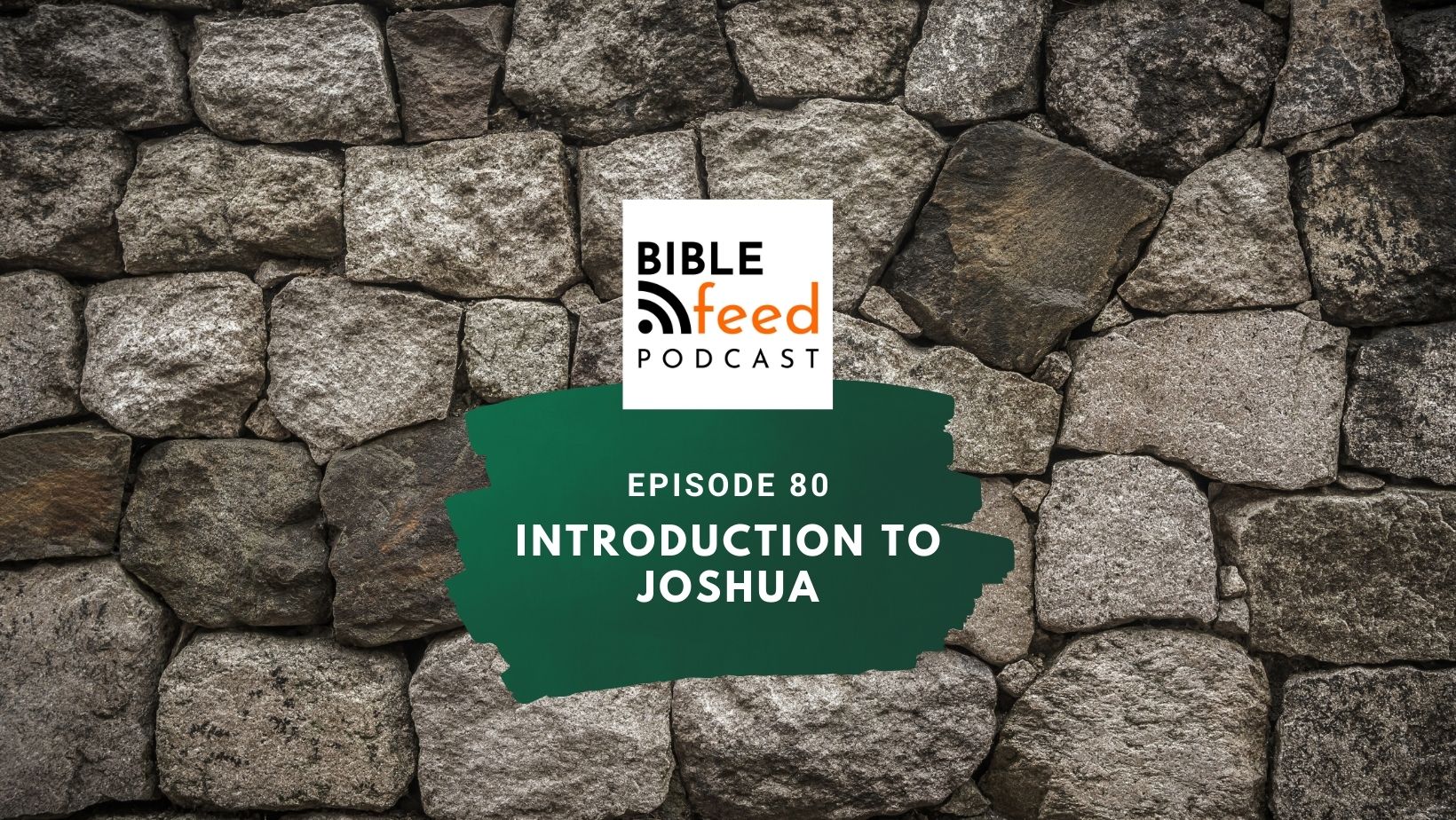Episode 80: Introduction to Joshua: A new generation
Josh and Dan explore the Book of Joshua in this episode, as a sequel to our series on the 5 books of the Torah. They trace its placement in the biblical narrative as a transition from the Torah and describe its themes of conquest and faith. Highlighting key figures like Rahab and the Gibeonites, they discuss the moral and historical complexities and offer context to understand the destruction narratives. By connecting Joshua’s story to larger biblical themes and references in later scriptures, Josh and Dan provide a nuanced understanding that avoids simplistic interpretations and points towards a broader divine purpose in Jesus.
Show Notes
Josh begins with a reminder of what our “intro” episodes aim to cover, with a look at the structure background, context and overall themes of a particular biblical book. They recognise straightaway that Joshua is sometimes a controversial book in the Bible. This is a consequence of the Canaan conquest narratives and also a difficulty with archaeological evidence, so they promise to look at that during the epsiode.
The book of Joshua in the Bible and History
Placing the book within the narrative of the Old Testament, Josh and Dan consider some points about the historical evidence. There are many named cities and places which can be corroborated, but many archaeologists don’t find evidence of a campaign of destruction through the land. For example, layers of ash cannot be found conclusively under every city. Leaving that aside for further discussion later, they also note that Egypt is still the big power broker in the region after the Exodus, which means that the kings of the cities in Canaan are largely controlled by and subservient to the Pharaohs.
The structure of the book of Joshua
Dan and Josh outline the structure of the book of Joshua in five clear sections:
- Introduction and the handover from Moses to Joshua (chapter 1)
- Joshua demonstrates he is the “new Moses” leading the people (chapters 2-5)
- The battles with the Canaanites (chapters 6-12)
- Dividing up the land into inheritance areas (chapters 13-22)
- Joshua’s final words as he passes the baton to a new generation (chapters 23-24)
Dan notes that the difficult aspects of the book of Joshua largely come in one small section of the book, therefore they need to be understood in full context of what the book is trying to convey. In particular, the Israelites are condemned by Joshua at the end of the book for holding onto their idols, which therefore suggests that we should not consider them and their conduct as paradigms for perfect spiritual behaviour.
Key themes in the book of Joshua
Moving on to key themes, Josh and Dan talk through some of the repeating themes in the book of Joshua. They discuss how the conquest was framed as “devoting to destruction” Canaanites just as Deuteronomy 7:1-2 had stated. However, they also note a repeating theme of Israelite failure and Gentile (i.e. non-Israelite) salvation. This begins with Rahab the prostitute in the Canaanite city of Jericho, who is saved with her household. She is contrasted with Achan, the Israelite who stole plunder from Jericho which should have been devoted to destruction.
This theme intensifies when the inhabitants of Gibeon, a nearby Canaanite city, fool the Israelites into thinking they are from a far away land and sign a treaty with them to save them all from the Israelite conquest.
Facing the problems with the conquest of Canaan
The theme of Israelite failure and Gentile salvation may be surprising in a book that seems to be about the extermination of natives from their own land, so Josh and Dan confront this question head on. They recognise that they cannot have all the answers, but they suggest that the overall narrative is intended to teach that God’s purpose extends beyond one national group and was working towards bringing all nations of the earth together, blessed in the family of Abraham (Genesis 12:1-3).

In connection with this, they discuss:
- It’s clear from Judges 1 and 3 that not all the Canaanites were actually wiped out. The conquest narratives are targeted and limited in scope.
- The language that suggests complete annihilation is likely to be hyperbole. Similar ancient battle records have been found from, for example, Egyptian conquests, and they use similar language. This is akin to describing a sporting victory as “we demolished them!” or “they were crushed!”
- The larger battles were actually defensive in nature. The Israelites came to the aid of Gibeon who was about to be destroyed by a league of other Canaanite city states. Therefore, Israel’s battles were actually about saving a whole Canaanite city state.
- Remembering that Egypt was the big power broker at the time, these raids can be characterised to some extent as part of the liberation from slavery – a second phase of the Exodus from the slave owners and the oppressors.
Joshua and the rest of the Bible
Concluding the episode, Josh and Dan look at some places where the book of Joshua is used and alluded to in the rest of the Bible, including the reign of Josiah (2 Kings 23), Hebrews 4:8 and the genealogy of Jesus in Matthew 1.
Related content
The full series introducing the first five books of the Bible (the Pentateuch or the Torah) are directly relevant to Joshua. You can start here with Genesis.
Listen to how the genealogy of Jesus, including Rahab, is used in the gospel of Matthew here.







